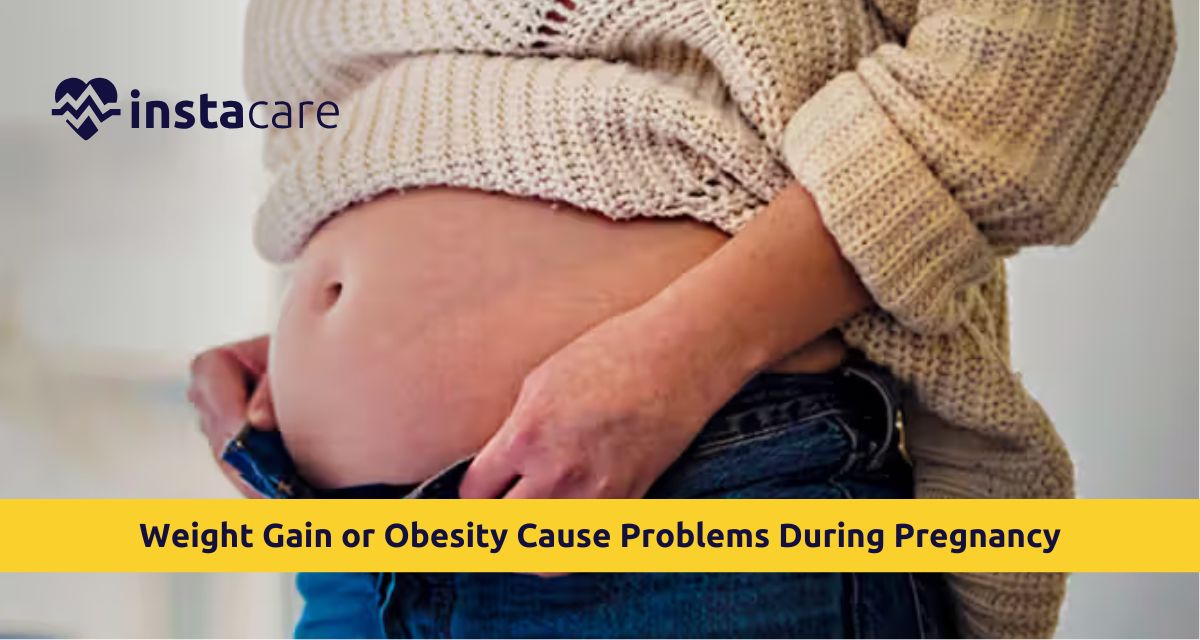Pregnancy is filled with so many physical and emotional
changes in a woman, and though pregnancy invariably brings weight gain, its
quantity or the fact that a woman is already obese at the onset of the
pregnancy greatly poses difficulty both for the mother and the fetus. This
article will delve into how weight gain and obesity lead to issues at
pregnancy, so digging into the risks and presenting importance on managing
one's weight and ideas on staying healthy throughout pregnancy.
Understanding Weight Gain in Pregnancy
Recommendations for Weight Gain in Pregnancy
The quantity of weight gained during pregnancy varies with a
woman's BMI before pregnancy. The following are most often recommended:
Underweight (BMI < 18.5): 28-40 pounds
Healthy weight range: 18.5-24.9; underweight is 25-35
pounds, overweight is 15-25 pounds and for obesity 11-20 pounds. The
recommendation follows several papers that suggests that pregnant women should
gain the needed weight so that they are associated with improved maternal and
neonatal health.
Importance of Healthy Weight Gain
Pregnant women who gain healthy weight, especially,
facilitate the normal growth and development of the fetus. Besides this, it
reduces complications. The ideal amount of weight gained will enable the baby
to be well nourished as the mother's body is also readied for labor and
breastfeeding.
High Risk Factors of Excessive Weight Gain and Obesity
1. Gestational Diabetes
This is the biggest risk of obesity at conception:
gestational diabetes. It shows up when the body cannot carry on with
satisfactory levels of insulin to regulate blood glucose levels appropriately
during pregnancy.
- Impact on Mother: Women with gestational diabetes are highly
susceptible to disease type 2 at a much later age. Gestational diabetes usually
leads to the development of many complications in delivery: among others,
cesarean operation.
- Effect on the Baby: All the babies of diabetic mothers will be macrosomia-large birth weight that complicates labor and delivery. Others might also experience low blood sugar levels after birth leading to other complications associated with health.
2. Hypertensive Disorders
Some of the most common associated risks for hypertensive
disorders during pregnancy include gestational hypertension and preeclampsia
during the time of delivery. Obesity is the major risk factor here.
- Gestational Hypertension: This disease is high blood
pressure during or after 20 weeks of pregnancy. If left undiagnosed, it results
in a number of complications for both the mother and the baby.
- Preeclampsia: It is developed due to a new-onset high blood pressure with involvement of other organ systems. Preeclampsia is related with more severe complications like prematurity, placental abruption, and future rise in cardiovascular morbidity in the mother.
3. High Risk for C-Section
Obesity has a very high risk of performing a C-section
compared to women who are normally weighted.
Complications at Delivery: The C-sections are not immune to
complications. They include infections, longer periods for recovery and
complications caused by anesthesia. Obesity can also be a complication in
surgery. That means that the postpartum complications risks are higher.
4. Complications in Fetal Development
Excess weight during pregnancy will have a resultant effect
on fetal development as follows :
- Birth Defects: Some studies indicate an association between
obesity and higher cases of birth defects, such as neural tube and heart
defects. Such defects cause dangerous complications in the lifetime of a baby.
- Growth Abnormalities: The disorder will come with various problems concerning the baby's growth, including macrosomia, where the baby is prone to complications at delivery and at times may require other medical interventions in the process.
5. Post-delivery Complications
Obesity in pregnant women leads to a number of complications
once she delivers:
- Post-delivery Bleeding Condition: This condition manifests
itself when there is bleeding post-delivery, and more often will affect the
obese woman.
- Infections: Obesity may predispose one to infections in the post-delivery period, especially the wound in case a caesarian section has been made. This would mean longer periods of recovery besides medical interventions .
6. Long-Term Health Implications
Obesity during pregnancy may lead to repercussions that may
be felt after the initial postpartum stage:
- Maternal Health: Obese women are prone to chronic diseases
like hypertension, diabetes, and heart disease once they have delivered. Such
diseases harshly impact the quality of life and years of life.
- Child Health: The children born to obese mothers are at the risk of obesity, diabetes, and other metabolic diseases even when they are young. Therefore, intergenerational risk demands weight regulation both before pregnancy and during pregnancy.
View More: How would you take a Positive Pregnancy Test
Weight Regulation in Pregnancy
1. Preconception Counseling
Preconception counseling is very essential for a woman who
intends to conceive. Counseling entails:
- Calculating Weight: Determining the pre-pregnancy weight and
setting practical targets in managing weight is a guarantee of healthy
pregnancy gain among the women.
- Nutritional Counseling: Counseling is essential to ensure that a woman acquires a healthy diet for pregnant formation by fruits, vegetables, whole grain food, lean proteins, and good fats.
2. Monitoring Intake
Monitoring weight gain helps the woman as she is likely to
be within recommended gains. Health care providers can give suitable counseling
given individual conditions.
3. Physical Activity
It can even help manage pregnancy weight gain safely and
maintain good health.
Safe Exercises
- For exercises, there's always a safe option. Some of the
safe exercises include walking, swimming, or prenatal yoga. It is always
essential to consult with a health-care provider before a new exercise program,
or even for some cases if you have a preceding medical condition.4. Nutritional
Education
- Education on a healthy diet and lifestyle can arm women with knowledge in which to make appropriate choices during pregnancy. This will involve understanding portion sizes, nutrient-dense foods, and no excessive intake of sugary and processed foods.
5. Support System
A support system greatly helps in weight management among
pregnant women. Included are:
- Healthcare Providers: Frequent check-ups and communications
with healthcare providers can help alleviate issues and provide direction.
- Family and Friends: Family and friends may be the reasons that push women toward the healthy lifestyles adoption during pregnancy.
Emotional and Psychological Factors
Body Image and Self-Concept
For women particularly women who had experienced earlier
issues related to weight, this is a period of radical changes in body image and
self-concept. This psychological and emotional condition needs to be dealt with
hence the body image has to be positive in such situations .
Psychological Support
Another mental health concern includes pregnancy. Women who
start developing anxiety or depression over her weight gain and body image, she
should be referred to mental health professionals. Counseling helps them
prepare coping strategies and face emotional adversity.
Conclusion
Weight gain and obesity during pregnancy causes some
complications for the mother and the baby. It is very essential for pregnant
parents to know these risks because, after gaining such knowledge, they can do
much to maintain their weight as well as to maintain overall good health at
this critical period.
Good lifestyle practices, monitoring in a regular manner,
and counseling can, in fact, make the phenomenon of pregnancy better and better
prepare mom and child for health and wellness. Pregnant women can always seek
advice and recommendations from their doctors based on individual cases and
needs.
Please book an appointment with the best Gynecologist in Lahore, Karachi, Islamabad, and all major cities of Pakistan through InstaCare, or call our helpline at 03171777509 to find the verified doctor for your disease.











